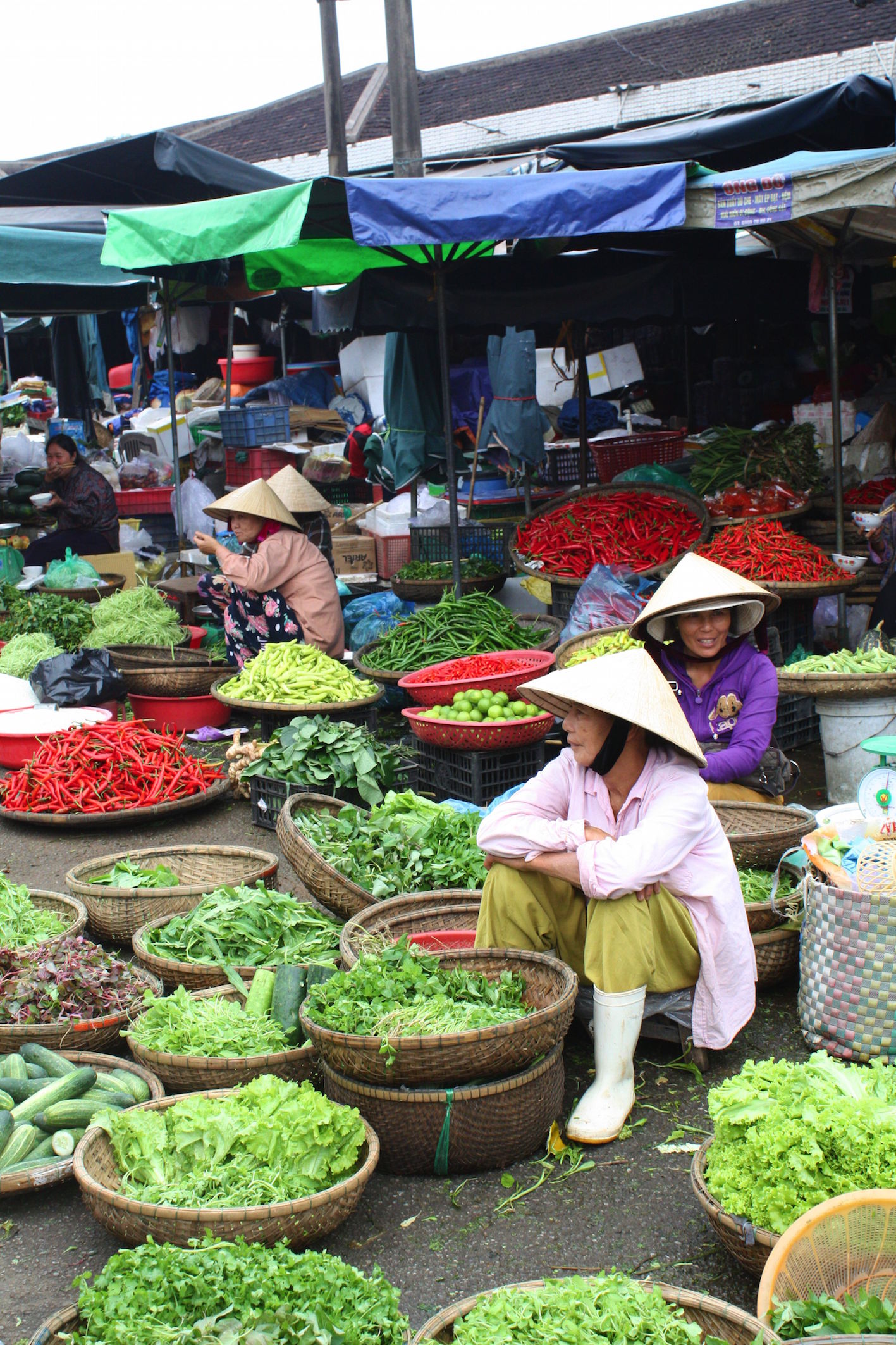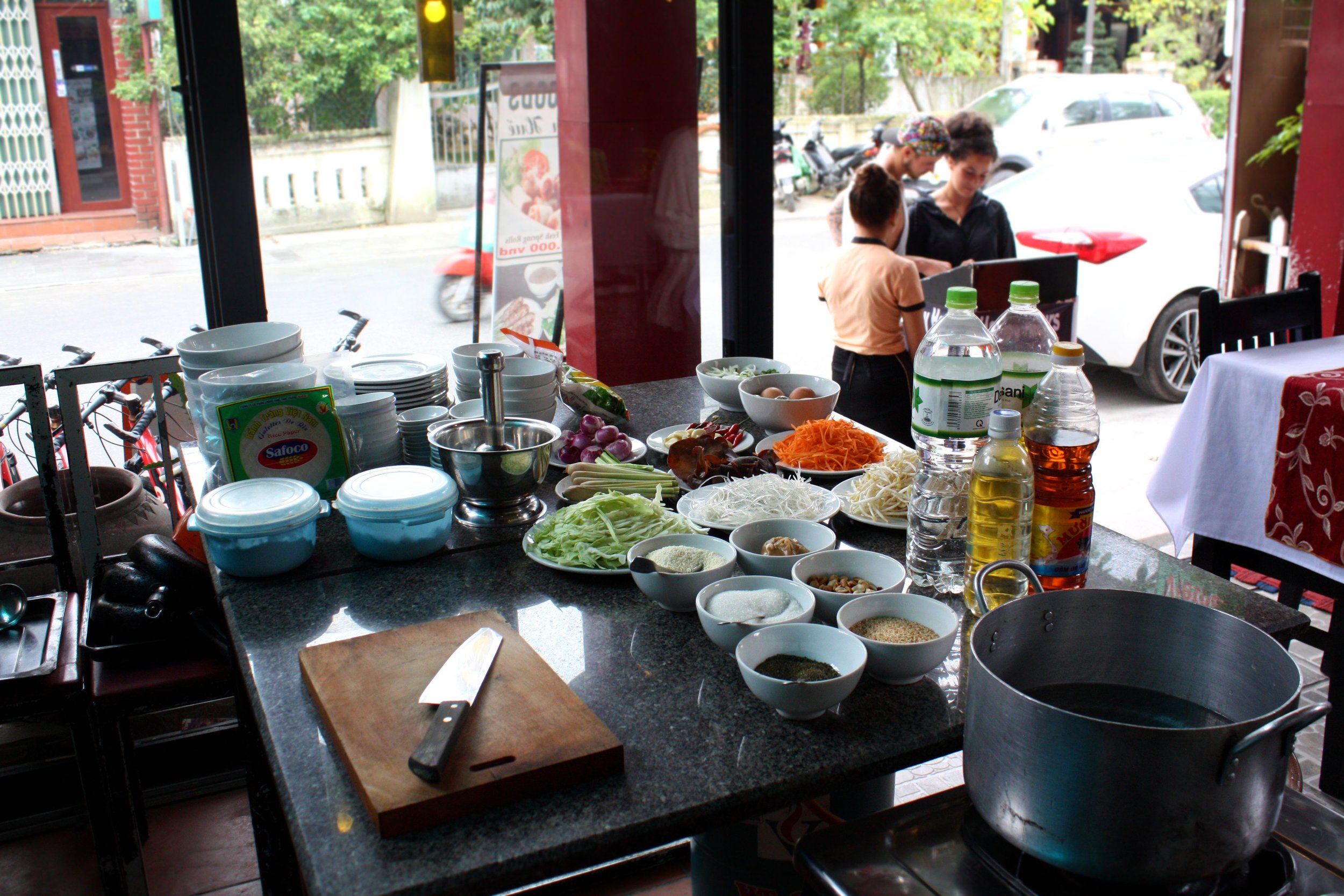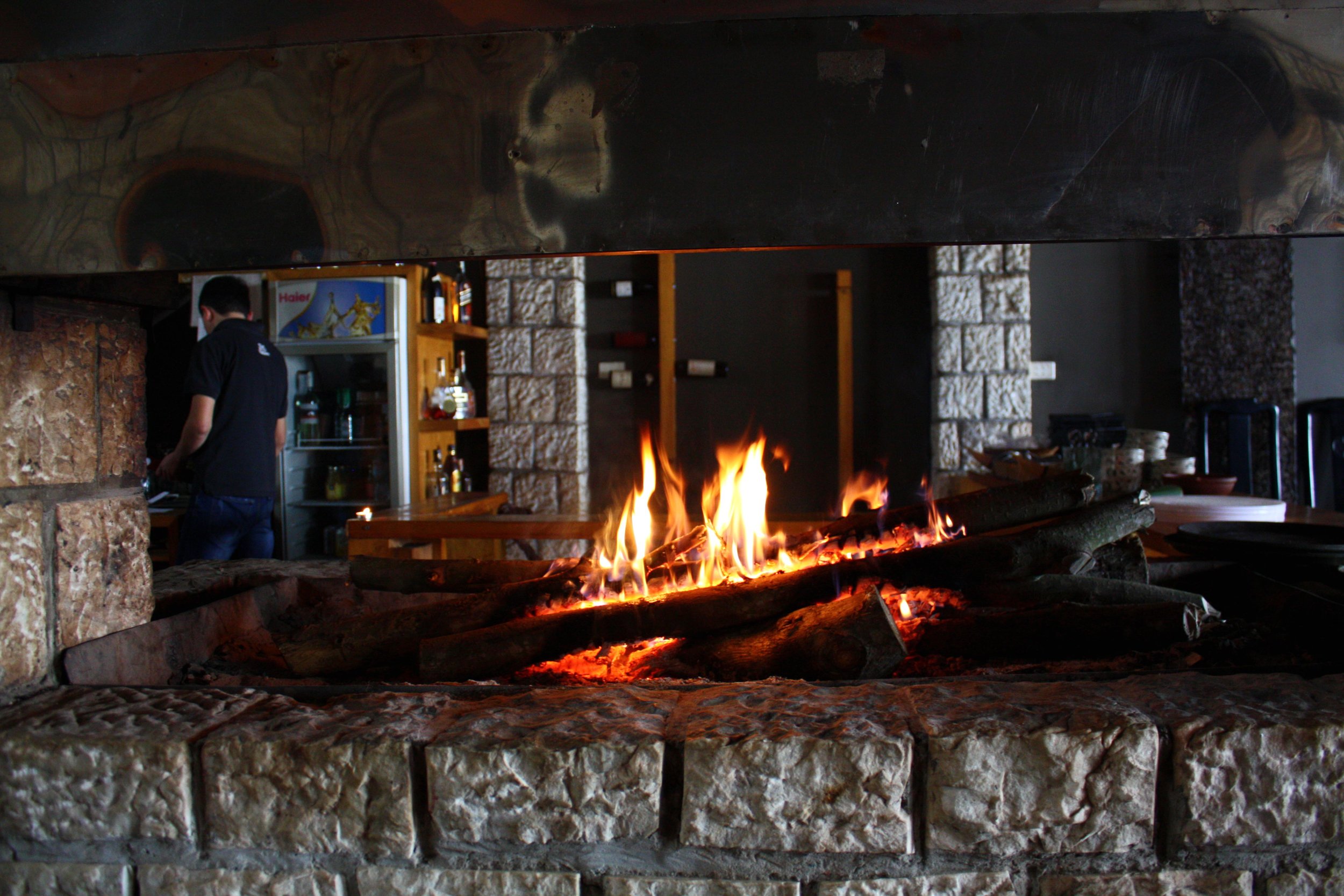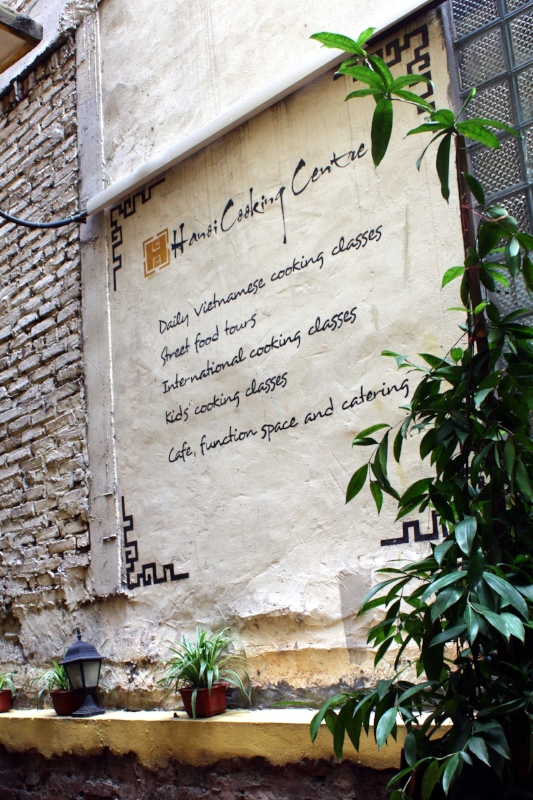Tagalalang Rice Terraces in Ubud
Vietnam: Masters of One
The food scene in Vietnam is all about the masters of one - restaurants named after one dish, serving one dish. You’ll find places with “Bun Cha,” “Pho,” or “Bun Bo Nam Bo” in their name, and the only options you have are whether your Bun Cha comes with or without spring rolls, whether your Pho has rare or well done beef, whether you want Bun Bo Nam Bo or nothing. The only way for these people to stay in business is to make their one dish really well, so you can feel confident that you’re going to get an excellent meal.
Read MoreCooking Class: Dewa and Jero's Bali Hideaway
Dewa and Jero’s class is a true taste of Balinese food and culture. A short motorbike away from the cramped Ubud centre, you’ll find yourself in a lush and beautiful hideaway for a couple of hours to taste, smell and eat traditional homestyle food. This class is the perfect combination of a beautiful setting, welcoming and instructive hosts and delicious food. Don’t miss out on it if you find yourself in Ubud!
Read MoreCooking Class: Kangaroo Restaurant
Kangaroo class is exactly the type of class that we typically try to avoid: it caters to larger groups, it has a set menu of tourist favourites and it came recommended by our hotel. However, we found ourselves liking the class much more than we expected and we think you might too! The focus is on very Hue-centric food, which you aren’t likely to learn about in other parts of Vietnam and the instruction is very clear. Give it a go if you’re passing through Hue! If you’re as lucky as we were, you might even get the class to yourself.
Read MoreBangkok riverside sunset.
Thailand: Even the 'bad' food is good
There is no such thing as ‘bad’ food in Thailand. While it's true that there are both tourist-Thai and local-Thai restaurants, even the tourist ones serve up pretty exceptional food. One week into our trip and we were still expecting disappointment every time we opted for a sit down meal rather than a take-away local meal from a market, but every time we were shocked by the results. Whether we ordered pandan-wrapped fried chicken, a classic curry, or some cashew chicken cooked on an open fire, there was no such thing as a bad meal.
Read MoreCooking Class: The Hill Station
The Hill Station runs a great series of cooking demos, though we’d hesitate to label it a cooking class since the hands on time is limited to basic chopping. Still, it's a very cool experience and if you're willing to put in the effort you can take some new techniques back home.
Read MoreCooking Class: Hanoi Cooking Centre
The people behind Hanoi Cooking Centre not only know Vietnamese food, they also know Western palates and pantries. The instruction is very clear, with great demonstrations and lots of hands on time. The biggest drawback in our course was that we didn't get to personally grill our food, but it by no means ruined the experience. The classes at Hanoi Cooking Centre are a great way to learn how to cook the food that regular Vietnamese people eat both at home and on the streets.
Read MoreRiding in our tuk tuk through Angkor Wat.
Cambodia: Choose Your Own Adventure
From the moment we landed in Phnom Penh to the last meal in Siem Reap, Cambodia showed us a world of opportunities and paths less travelled. The country hands you endless new smells, tastes, and sights that you turn into your own adventure - sometimes it works out for the better and sometimes it doesn't. But that's the fun of it! You really learn to be spontaneous here.
Read MoreCooking Class: Pea's Homestyle Thai Food
Pea’s course is a great way to learn simple, delicious homestyle Thai food. It’s not fancy, it doesn’t require a gazillion ingredients, and it won’t take hours to prepare. She’s also well aware of what ingredients most Westerners can and can’t source, and has chosen her menu accordingly. If you want to know what Thai people are likely to eat on a day-to-day basis, this is the course for you!
Read MoreCooking Class: We's Kitchen
We’s class is a sneak peak into the lesser known Northern Thai cuisine. Northern Thai food is heartier, more rustic, and packed full of herbs. If you know what you want to learn, you can customize 3-4 dishes for her to teach. If you don’t have suggestions, she can either design a menu to showcase Northern classics, or she can teach you some classics like panang or massaman curry, pad thai, or whatever else you can dream up! As it was private, it cost more than other classes, but was still a reasonable price for North American standards.
Read MoreCooking Class: Sela's Homestyle Food Experience
Sela’s class is a great way to get an in depth look at Cambodian food and culture in a family setting. He’s knowledgeable, passionate and on a mission to help his community and nearby farmers. We loved the opportunity to hang out with his wife, kids and dogs while cooking up some interesting dishes not found at standard tourist-friendly cooking classes.
Read MoreCooking Class: Nary's Kitchen
This class is indicative of what you'll find across Cambodia: a good introduction to accessible Khmer food at a very reasonable price. All of the menu items are very Western-palate-friendly, the kitchen is clean, and the instruction is good. The available menu, however, is not unique to this class. It features the same 5-10 options found around the country, though they are done quite well here.
Read MoreWhat do you want to eat next?
That's the most common question we've asked each other in the last week. For us, this trip is less about the sights and more about the smells, tastes and textures. Don't get me wrong, the sights are important and beautiful, and we've loved learning more about Cambodian culture and history, but that's just the side dish. The main course is the main course.
Read MoreGuide to Buying Tea in Taipei
You've just arrived in Taipei and you want to get your hands on some of the best oolong tea on the planet. You go online and do some searching but can't find any conclusive information. The stores you check have wildly different prices and you don't know why. Which stores can you trust? Is it better to buy at a farmer's market? Do you buy the nicely packaged tea with beautiful labels, or will all that packaging just artificially inflate the price?
Read MoreOodles of noodles at YongKang Noodles in Taipei.
















